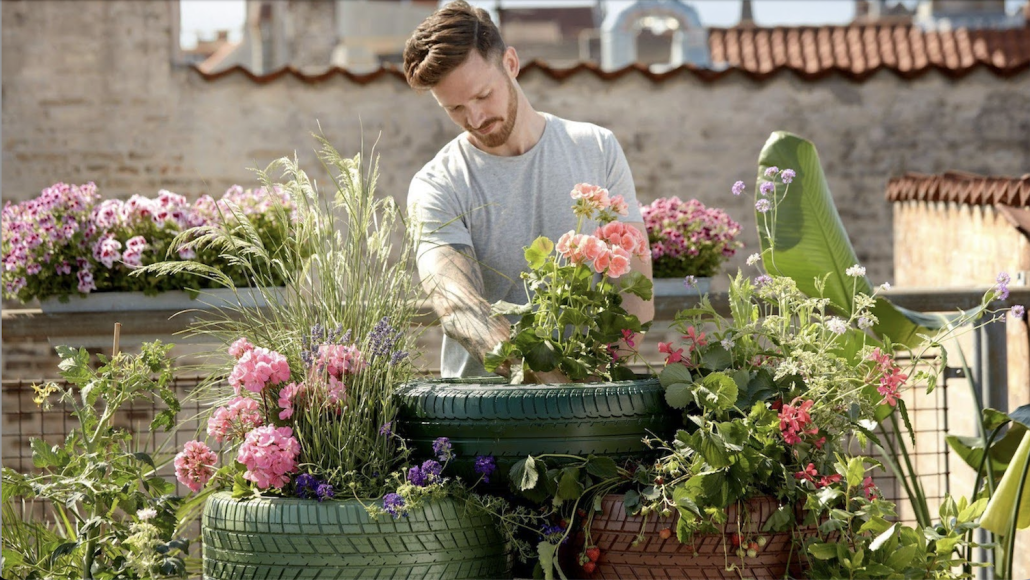Gardening with Allergies: Tips to Cultivate a Symptom-Free Environment

Gardening is a wonderful hobby! It offers a unique blend of benefits like physical activity, mental relaxation and a direct connection to nature. Yet, for people living with allergies, this serenity can often lead to stressful symptoms…but it does not have to be that way. With the right understanding, anyone can unearth peace in this green space.
Understanding Allergies in the Garden
Gardening exposes us to a range of allergens, like mold, pollen from trees, grasses and weeds and even insect stings. Identifying which allergens affect you is the first step toward creating an allergy-friendly garden.
For starters, many environmental allergens are seasonal:
Spring: Tree pollens like oak, birch, and cedar.
Summer: Grass pollens from Bermuda and Timothy grasses and certain weed pollens.
Fall: Weed pollens, especially ragweed.
Which seasonal allergies are present and when your “season” begins can vary across the country. This guide to regional seasonal allergies can help you learn more about the most common U.S. seasonal allergens near you.
Also, pinpointing when your symptoms begin can offer you incredible insight into their causes. When gardening, be mindful of allergy symptoms (sneezing, runny nose, or congestion, itchy or watery eyes and skin irritation) and if these symptoms regularly begin around a specific plant.
Designing an Allergy-Friendly Garden
Creating an allergy-friendly garden allows everyone to enjoy the outdoors without fear of allergy symptoms. While it may require some adjustments and extra planning, the following steps will help create a beautiful, welcoming space for all.
1. Design with allergies in mind.
Layout your garden to minimize allergen exposure. Place allergenic plants away from windows and sitting areas. Use gravel or mulch instead of grass in areas close to the house to reduce pollen exposure.
2. Implement symptom-reducing maintenance practices.
Regular maintenance can significantly lower pollen levels. Wear a mask when doing yard work, mow the lawn weekly and remove weeds before they bloom.
3. Create an allergy barrier.
Plant allergy-friendly hedges or install barriers to shield your garden from prevailing winds that might carry pollen from neighboring areas. Strategic planting can create a natural filter against airborne allergens.
4. Garden during low-pollen hours.
Engage in gardening activities when pollen counts are lower, typically late afternoon or after rain. Early morning and windy days generally have higher pollen levels, so avoid gardening at these times.
5. Avoid overwatering your plants.
Your garden needs water to grow. However, too much water can create a damp environment where allergy-producing molds can thrive.
6. Keep allergens out of the house.
After gardening, change your clothes and shower immediately to remove allergens. Keeping gardening tools and apparel outside the living area can also help reduce indoor allergen levels.
Allergy-Friendly Plant Selection
Allergy-friendly gardens can also be lush and vibrant! Choosing the right plants is crucial for an allergy-friendly garden. Here are some additional suggestions:
- Flowers: Opt for brightly colored flowers that attract birds and bees, such as snapdragons, zinnias and petunias. These plants are less likely to release pollen into the air.
- Trees: Apple, cherry, dogwood and pear trees are considered low-allergy options.
- Shrubs: Azaleas, rhododendrons and boxwoods are great for adding structure to your garden without aggravating symptoms. Boxwood, holly and English ivy are excellent choices for added greenery.
- Herbs: For gardeners interested in more than aesthetics, basil, hives and parsley are a welcome addition to your allergy-friendly herb garden.
Remember, the goal of an allergy-friendly garden is not to create a sterile, plant-free zone but rather a thoughtfully designed space that reduces allergen exposure while maximizing the enjoyment and health benefits of gardening.
Are you ready to cultivate an allergy-free life?
We’re ready to help you grow beyond your symptoms! Allergy & Asthma Specialists’ trusted allergy specialists are always ready to guide patients toward relief. With locations across the region, allergy relief is always close to home. Contact us today to schedule your allergy appointment.
About Allergy & Asthma Specialists
Allergy & Asthma Specialists is affiliated with Family Allergy & Asthma, a network of allergy and asthma doctors dedicated to providing high-quality, reliable and lasting allergy relief. Allergy & Asthma Specialists serves patients at eight Philadelphia-area locations, including the communities of Blue Bell, Collegeville, Doylestown, Jenkintown, King of Prussia, Landsdale, Philadelphia and Pottstown. For more information, visit allergyphilly.com, and follow Allergy & Asthma Specialists on Facebook, Instagram and X.


